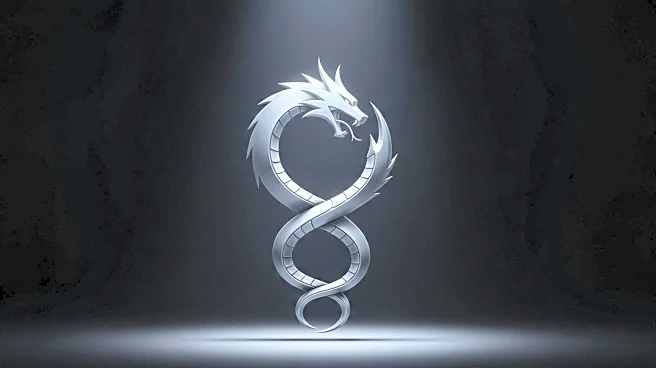What's Happening?
Warner Bros. has announced a delay in the release of 'Mortal Kombat II,' moving it from October 24, 2025, to May 15, 2026. The decision aims to position the film for a summer release, avoiding the crowded October schedule. Directed by Simon McQuoid, the sequel continues the story of Earth’s defenders against Outworld's evil forces, following the 2021 reboot of the franchise. The film features a star-studded cast including Karl Urban, Adeline Rudolph, and Jessica McNamee, among others. The script, penned by Jeremy Slater, is based on the iconic video game series created by Ed Boon and John Tobias. The first trailer, released last month, showcases Urban's character humorously dismissing a reboot of his signature show.
Why It's Important?
The delay of 'Mortal Kombat II' to a summer release is significant for Warner Bros. as it strategically positions the film to capitalize on the lucrative summer box office season. This move mirrors the success of Sony's 'Final Destination: Bloodlines,' which thrived in a similar May slot. The decision reflects the studio's confidence in the film's potential to attract a large audience during a period traditionally associated with blockbuster releases. For fans of the franchise, the delay may heighten anticipation, while the film's release timing could impact the competitive landscape of summer movie offerings.
What's Next?
With the new release date set for May 2026, Warner Bros. is likely to ramp up promotional efforts to build anticipation for 'Mortal Kombat II.' This may include additional trailers, marketing campaigns, and possibly exclusive previews at industry events like CinemaCon. The film's producers, including James Wan and Todd Garner, will focus on ensuring the movie meets high expectations, leveraging the popularity of the video game franchise. Fans can expect more insights into the film's plot and character developments as the release date approaches.
Beyond the Headlines
The delay of 'Mortal Kombat II' may have broader implications for the film industry, highlighting the strategic importance of release timing in maximizing box office potential. It underscores the competitive nature of movie scheduling, where studios must navigate crowded release calendars to optimize audience reach. Additionally, the film's success could influence future adaptations of video games into movies, reinforcing the viability of such projects in Hollywood.











